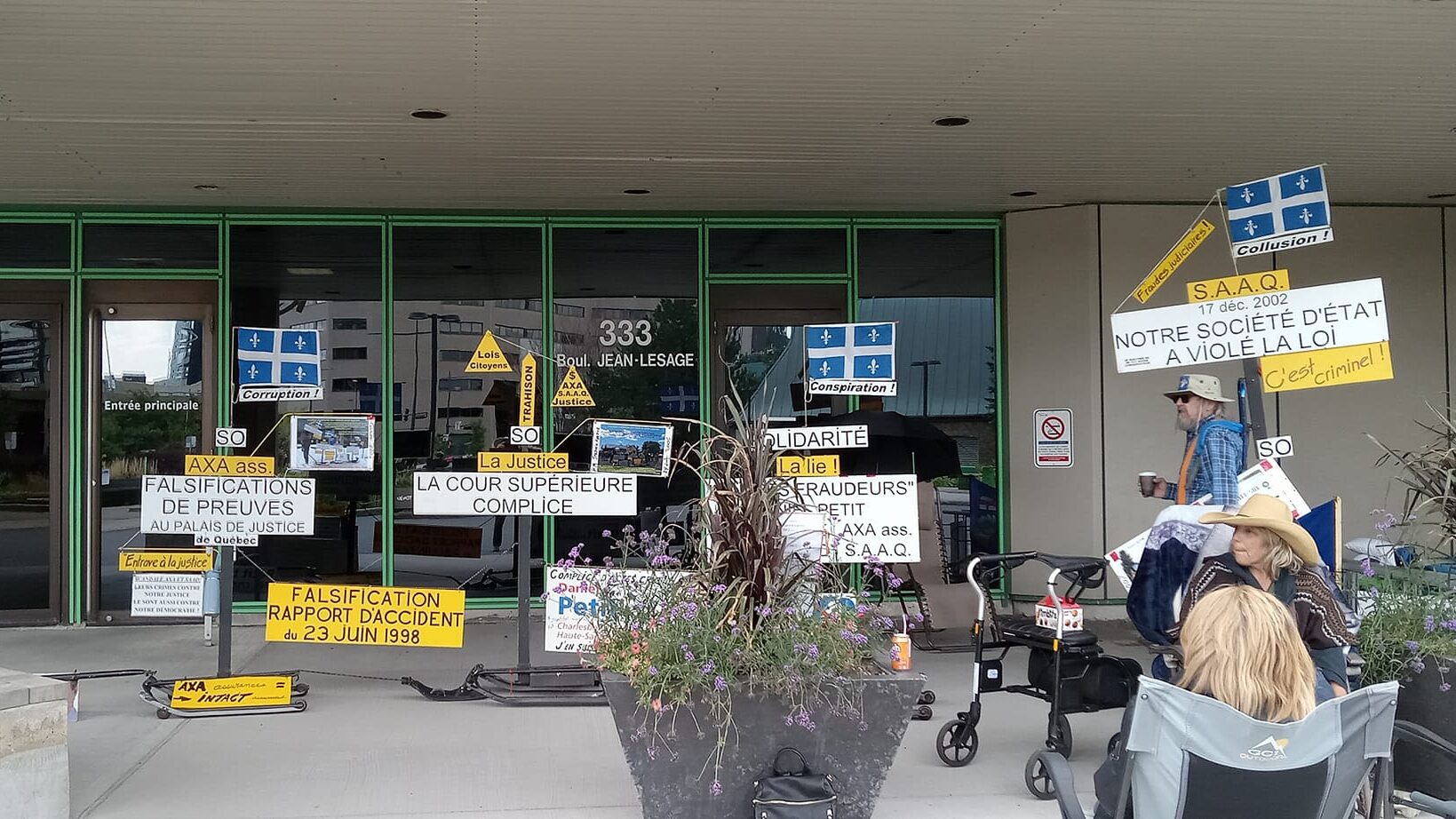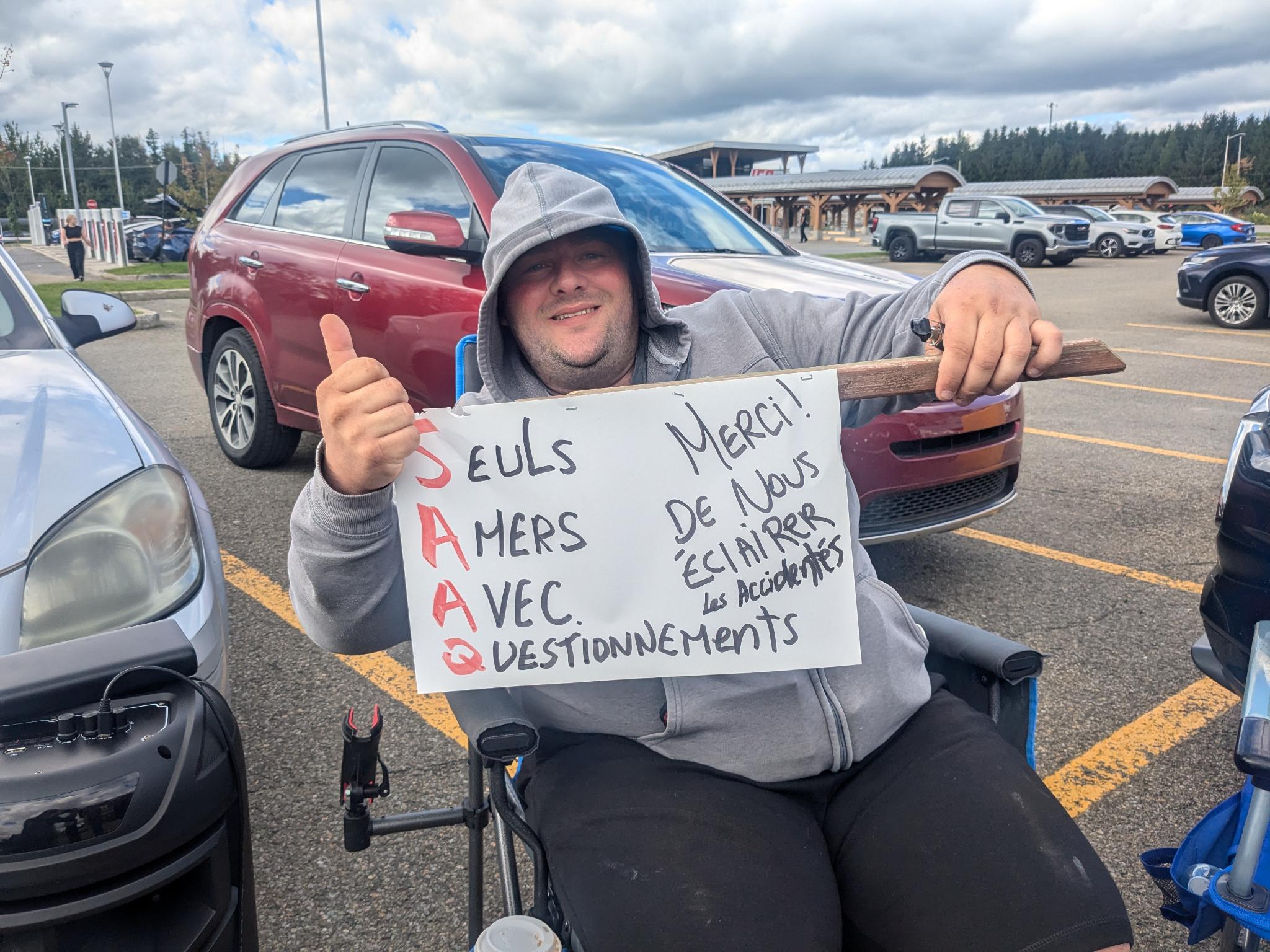For more than a week, members of the A.A.R.V.S. (in english, Association of Injured Drivers Victims of the SAAQ) have spent 24 hours a day outside the offices of the Société de l'Assurance Automobile du Québec (SAAQ), Quebec's auto insurer. At the heart of this struggle, the story of Kevin Turcotte, a heavy machinery operator, embodies the injustice that many victims experience on a daily basis.
Kevin, the victim of a serious car accident in 2007, was hoping to get the help he needed from the SAAQ to get his life back on track. But the reality he faced was quite different, as doctors decided they couldn't operate on his badly damaged foot. Then the SAAQ stood in front of him like a giant:
"What I wanted was help from a good heart, genuine and true. What I got was: 'Sir, you're okay. You don't have a problem,'" he says, visibly distressed by the treatment he received. “They ignored me completely.”
Like many others, Kevin has been forced to fight against a bureaucratic machine that refuses to acknowledge his reality. When he appeared before the Tribunal administratif du Québec, his trade as a heavy machinery operator was not recognized. He had just finished his studies.
"They paid me five years' wages as an 'electronics assembler', a job I'd never done, close to minimum wage," he explains.
Those five years didn't allow Kevin to fully recover. Yet the SAAQ did not renew his benefits. “At the end of that period, I had to go back to work as a heavy machinery operator. But often, I ended up getting kicked out because I wasn't producing enough,” adding that operating pedals with a crippled foot is extremely difficult.
"You're driving an excavator, and you've got everyone's health and safety in your hands. It doesn't work."
This exhausting daily routine has had a major impact on his personal life. "I'd get up at 4:30, come back in the evening and do nothing. I had no energy." Kevin points out that, with the right support, he could have reoriented his career towards a job more compatible with his state of health.

After seven years working as a heavy machinery operator, Kevin was once again forced to withdraw from the job market. The SAAQ then compensated him for six months, based on his real job, before returning to compensation based on the salary of an electronics assembler. Today, Kevin still earns close to the minimum wage.
In 2023, Kevin's foot gave out completely. "I got home, and I wasn't able to walk or stand up anymore. It was all over. My wife told me we could go and see a surgeon. I went in for the operation, and it turned out to be a good repair after all." Even so, his foot remains fragile. It took over ten years for a surgeon to agree to perform the operation.
Kevin is one of too many people who have been sidelined by SAAQ procedures. Indeed, following several deficits at the turn of the 2000s, the state-owned company had embarked on a vast reform project to cut costs, based among other things on the idea of getting people back into the workforce more quickly. In addition, it is openly aiming for a model closer to private insurance.
For Kevin, the answer to this bureaucratic hell doesn't lie in money alone, but in humanity and solidarity:
"We've all separated, but we should unite and stand together as a people. Not just Quebecers, but Canadians, Americans, the whole world. [...] We need money just to live, but to live, we have to be united, and to be united, we have to love each other."
The AARVS and its members are determined to continue their struggle until the SAAQ and the government recognize their fundamental rights. They are still out in front of the institution's Quebec City offices 24 hours a day, holding firm despite threats from administrators.
One of the demonstrators has received a formal notice asking him to remove his placards and stop obstructing the work of employees.
- “It’s time to act, before everyone ends up dead”
- Quebec’s public auto insurer creates bureaucratic hell for road accident victims
- When surveillance becomes a weapon against road accident victims
- Road accident victims left to fend for themselves over the age of 67
- The SAAQ operates like private insurance, and the human cost is enormous
- Letter: The promise to road accident victims has been betrayed
- Letter – “Enough is enough, SAAQ, hear my cry”


